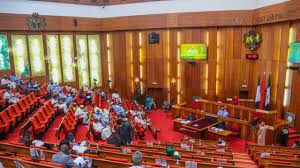The Central Bank of Nigeria (CBN) last year introduced three Tiered of Know-Your-Customer (KYC) policy as part of efforts to enhance financial inclusion and reduce the incidence of identity fraud. In this report AMAKA IFEAKANDU examines the importance and its impact on the nation’s financial sector
One of the things affecting the economic growth of many countries, especially, developing countries is large population and inability of low income earners to have access to financial services. This has pushed a lot people to either depend on individual or other informal sources for financing their businesses.
In Nigeria, available statistics showed that 56.3 million or 64.1% of adult Nigerians do not have access to financial services. Among factors responsible for the high level of financial exclusion are irregular income, unemployment, far-flung and inadequate number of bank branches as well as cumbersome account opening requirements/procedures.
Failure by these Nigerians to have access to financial services keeps them out of the formal economy and indirectly promote informal sector. Most of them, according to a study by EFInA, are women, rural dwellers, farmers and illiterates with majority living in the rural areas and using only cash for their business transactions.
In furtherance of measures aimed at enhancing financial inclusion and access to finance, the CBN developed the tiered Know-Your-Customerrequirements for compliance by banks and other financial institutions under its regulatory purview. Aside from achieving financial inclusion, the KYC was conceived in line with the CBN’s efforts to reduce the incidence of identity fraud in the system.
In its working document, the apex bank explained that the KYC requirements regime was set to ensure application of flexible account opening requirement for low-value and medium value accounts and these are subjects to caps and restrictions as the amount of transactions increase. This means that account opening requirements will increase progressively with less restrictions on operations.
Interestingly, the CBN main objective is to promote and deepen financial inclusion, by making account opening more attractive to customers of different socio economic levels. The relaxed KYC allows a third party, such as clergymen, village or clan heads, headmasters among others, with acceptable means of recognition to identify socially-disadvantaged persons with no formal means of identification on the level one or low value accounts KYC requirement. It also requires financial institutions to formulate written policies on financially disadvantaged customers and prescribed the type of documents acceptable for their identification to be provided by third party identifiers.
However, the tiered KYC is structured into three categories of Low Value Account (LVA); Medium Value Account (MVA): and High Value Account (HVA). The LVA is a savings account designed for those who do not have any means of identification. While the account is accessible to anybody irrespective of level of literacy and socio-economic status, it is subject to close monitoring by the financial institutions, and less scrutiny by bank examiners.
Also, it can be opened at any branch or through account agents, but the accounts will not allow international transfers and no amount is needed for opening. According to CBN, such account covers Mobile banking products issued in accordance with its regulatory framework for mobile payment service in Nigeria. The account opening for low level required only basic information that includes passport photograph, name, place and date of birth, gender, address, and the information may be uploaded offsite or submitted on-site in banks’ branches or agents’ offices.
However, the customer does not need to provide documentary evidence of the information and the bank does not need to verify the information. Furthermore, no amount is required to open this type of account. But the customer cannot deposit more than N20, 000 at a time, and the balance in the account must not be more than N200, 000 at any time.
The apex bank said if the account is linked to a mobile phone, and used for mobile money purposes, the maximum transaction limit allowed is N3, 000 with a daily limit of N30, 000
On the other hand, the second category, the MVA is designed for savings accounts and does not need the physical presence of the prospective customer for account opening. The major difference is that, the information supplied by the prospective customer must be supported with valid means of identification and must be verified by the CBN.
According to CBN, “the MVA accounts can be opened at any branch of a bank by agents on behalf of enterprises for mass payroll purposes or by the account holder. It can be contracted by phone or at the banking institution website. Account opening can be conducted face-to-face (directly) at bank branches and by banking agents; No amount is required for opening of the accounts.
Among the basic customer information required are: “passport photograph, name, place and date of birth, gender, address, etc. These may be forwarded electronically or submitted on-site in banks’ branches or agents offices
“Customer information obtained (name, place and date of birth, gender, address) are to be verified against similar information contained in the official data-bases such as the National Identity Management Commission (NIMC), Independent National Electoral Commission (INEC) Voters Register, Federal Road Safety Commission (FSRC)]. It is subject to further ID verification and monitoring by financial institutions with maximum transaction limit of N10, 000 and daily limit of N100, 000”
On the contrary, the HVA is for people who can meet all the documentation required to open a normal bank account. This form of account can be opened at a bank branch by physical presence of the prospective customer and it could be both savings and current. No amount is required for opening of accounts and no limit is placed on cumulative balance.
The HVA can also be used for full mobile-banking services with maximum transaction limit of N100,000 and a daily limit of N1, 000,000. Such products are subject to the CBN regulatory framework for mobile payment service in Nigeria. The apex regulator said the account holders are required to comply with the KYC requirements contained in CBN AML/CFT regulation 2009 as amended.
Highlighting the benefits of KYC, acting director, financial policy and regulation department (CBN), Mr. I.T. Nwaoha said success of the tiered KYC regime would promote financial inclusion; increase the effectiveness of KYC requirements; and improve the quality of KYC information obtained by financial institutions from their customers.
“We observed that the laudable policy would produce lasting result if it is properly implemented and monitored timely from its inception. It is on this note that the implementation strategy was developed by the CBN, in order to ensure its success. The strategy ensures that CBN carries out certain commitment to demonstrate its seriousness to the project and the financial institutions comply with the various provisions of the guidelines and also put in place the required infrastructure,” he stated.
Giving further insights, director, banking and payments system department, CBN, DipoFatokun while reviewing the National Financial Inclusion Strategy (NFIS) said the apex bank and other stakeholders were implementing this strategy to reduce the number of Nigerians excluded from financial services from 46.3% to 20% by 2020 in line with the Maya Declaration.
In a presentation on “Issues and Challenges of Implementing Mobile Payment Services in Nigeria” at a roundtable discussion organised in Lagos recently, Fatokun said a large percentage of stakeholders in the financial sector are un-banked due to lack of trust; financial illiteracy; poor and unreliable network among others.
He pointed out that large percentage of the total amount of economic transactions was not even captured in the formal financial system due to these setbacks, adding “This is not good for the nation’s economic growth as it negates the efforts of government toward the FSS 2020 objective of financial inclusion.” He, however, said that to enhance traction, the CBN was making frantic efforts towards achieving the FSS 2020 with the three-tiered Know-Your-Customer.”
Fatokun said the KYC scheme was an avenue to modernize Nigeria’s financial system; reduce the cost of banking services; drive financial inclusion; improve effectiveness of monetary policy; reduce the high security and safety risks; reduce high subsidy; foster transparency; curb corruption and ultimately meet the Federal Government’s Vision 2020.
For him, “the transformation of the existing uniform KYC regulation into a simplified risk-based tiered framework that allows individuals that currently do not have the required formal identification measure to enter the banking system” just as he maintained that the national financial literacy framework was designed to educate Nigeria and improve their understanding of financial products and services and to develop their skills and confidence to become more aware of financial risks and opportunity.
Similarly, ObotUdofia, a deputy director in CBN said the KYC would help to discourage money laundering and the use of cash for transactions; make financial resources transparently available for efficient intermediation. In a presentation recently, Udofia mentioned other benefits to include moving funds from the informal sector into the formal sector; strengthening confidence in the financial industry and promoting financial development that would in-turn accelerate economic growth.
He said financial institutions would also benefit greatly given substantial reduction in the cost of financial services due to less volume of documentations with increased number of customers through the deployment of innovative technology while customers can benefit from having access to a variety of financial products and services provided by regulated and supervised institutions.



